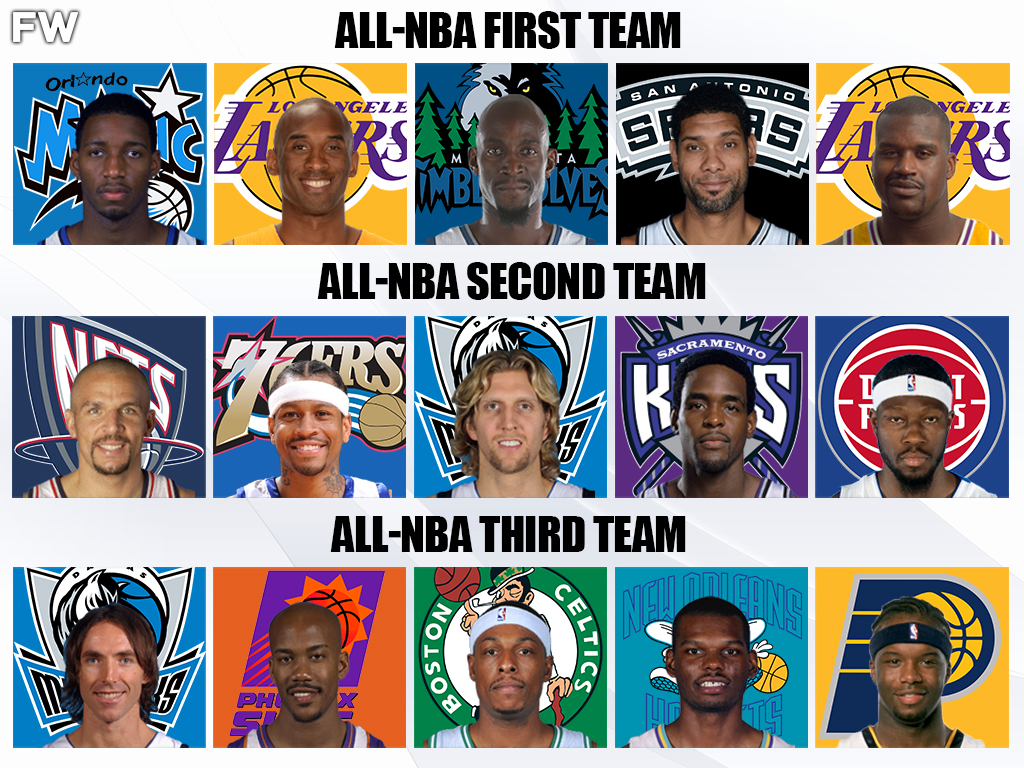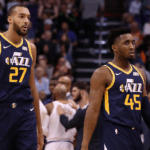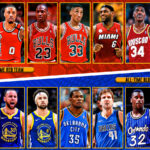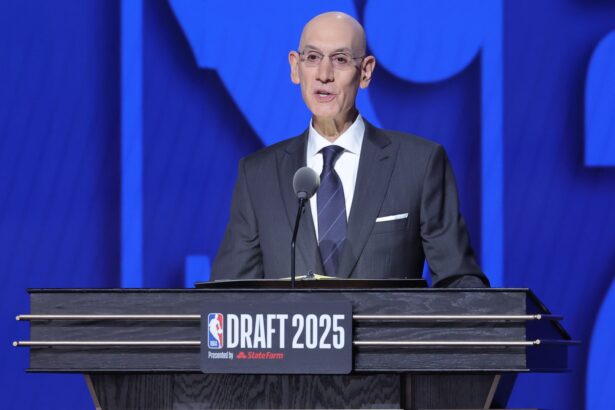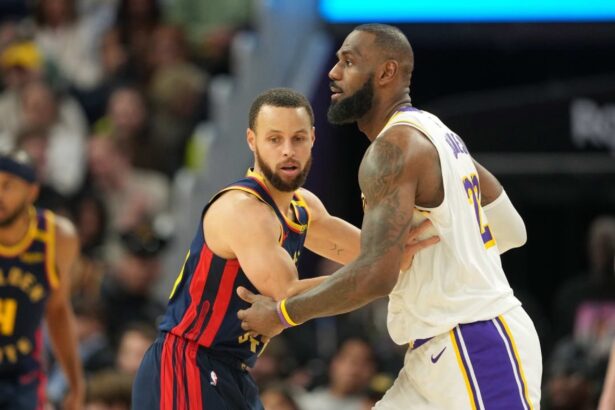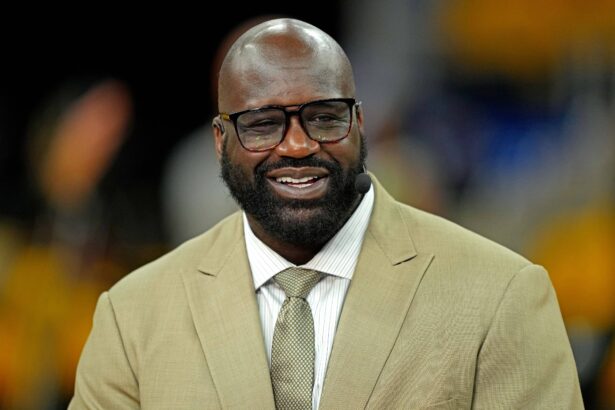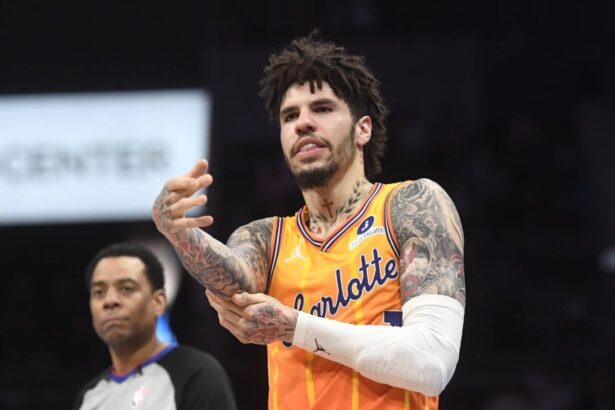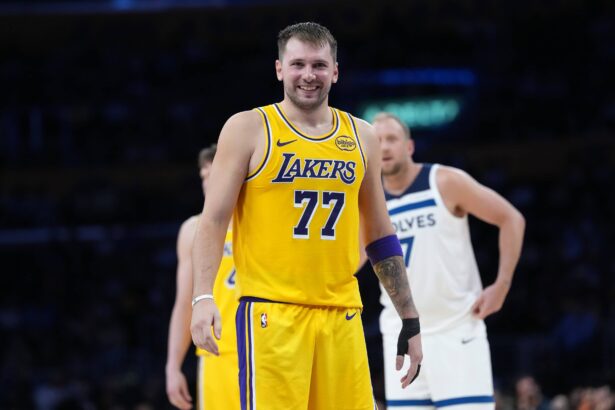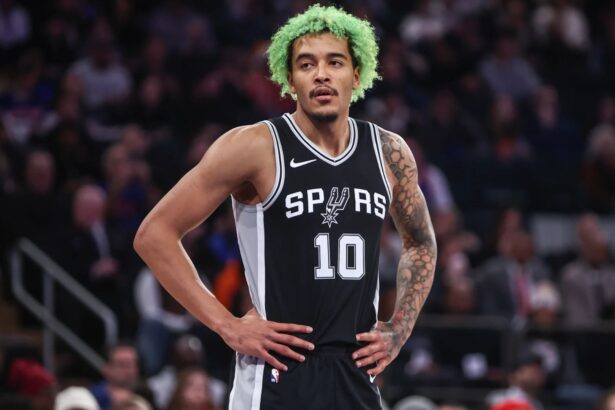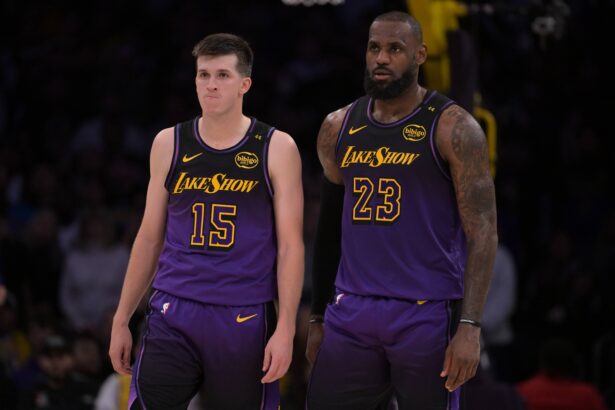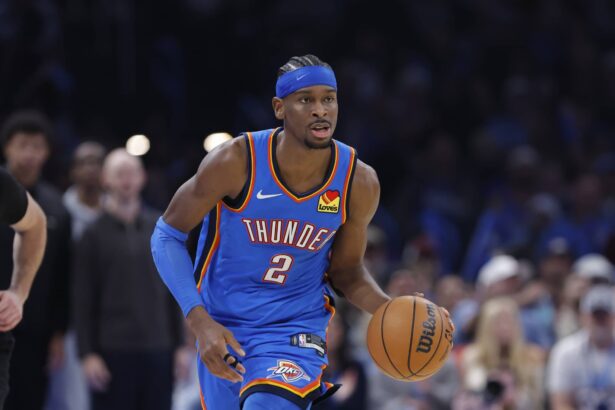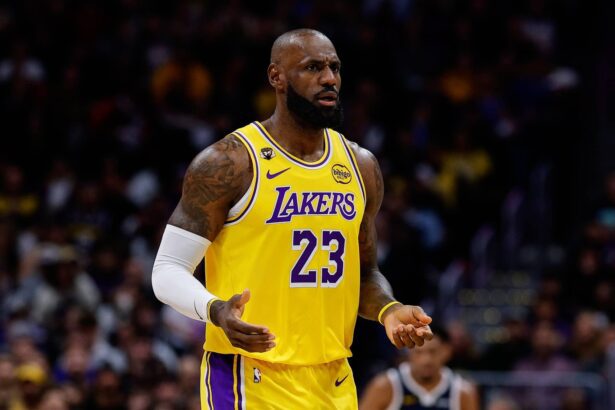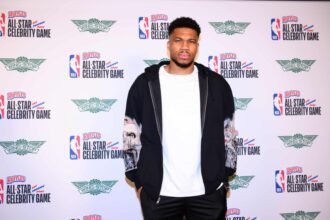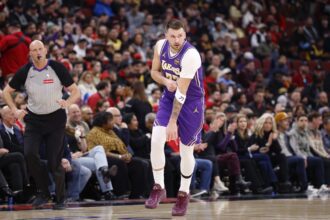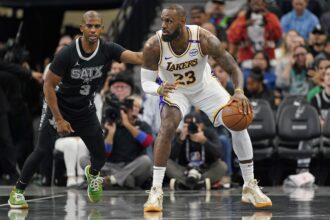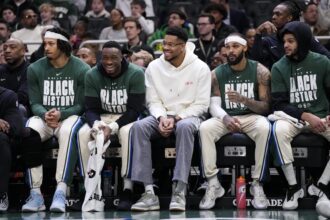Making an All-NBA Team is not easy, because only 15 players per season have a chance at doing so. It requires individual performances, winning, and dominance on the court on a consistent basis to be recognized as an All-NBA performer. We have seen how legendary the 2001 All-NBA Team was, but the 2003 All-NBA Teams might be even better. We saw the rise of Tracy McGrady as a top-two guard in the game while big men Tim Duncan and Shaquille O’Neal continued their dominance in the paint.
- All-NBA Third Team
- Steve Nash
- Stephon Marbury
- Paul Pierce
- Jamal Mashburn
- Jermaine O’Neal
- All-NBA Second Team
- Jason Kidd
- Allen Iverson
- Dirk Nowitzki
- Chris Webber
- Ben Wallace
- All-NBA First Team
- Tracy McGrady
- Kobe Bryant
- Kevin Garnett
- Tim Duncan
- Shaquille O’Neal
- Next
- 2000-01 All-NBA Teams: These Three Squads Were Stacked
- 2003-04 NBA Scoring Leaders: Tracy McGrady Won Back-To-Back Awards, Peja Stojakovic Was On Fire
- Most All-NBA First Team Selections: LeBron James Is The All-Time Leader With 13
- Top 10 NBA Players Who Never Missed The Playoffs: Karl Malone And John Stockton Made 19 Straight Playoff Appearances
- 10 Highest Scoring NBA Teams In The Regular Season: 1982 Nuggets Still Hold The Record With 126.5 PPG
But we also witnessed the continuing rise of other top stars in the game who impacted the game in their own way. It is amazing to see how players from the All-NBA Second and Third Team have arguments for making the First Team because their talent and value to their teams was truly exceptional. Without further ado, here are the All-NBA Teams
All-NBA Third Team
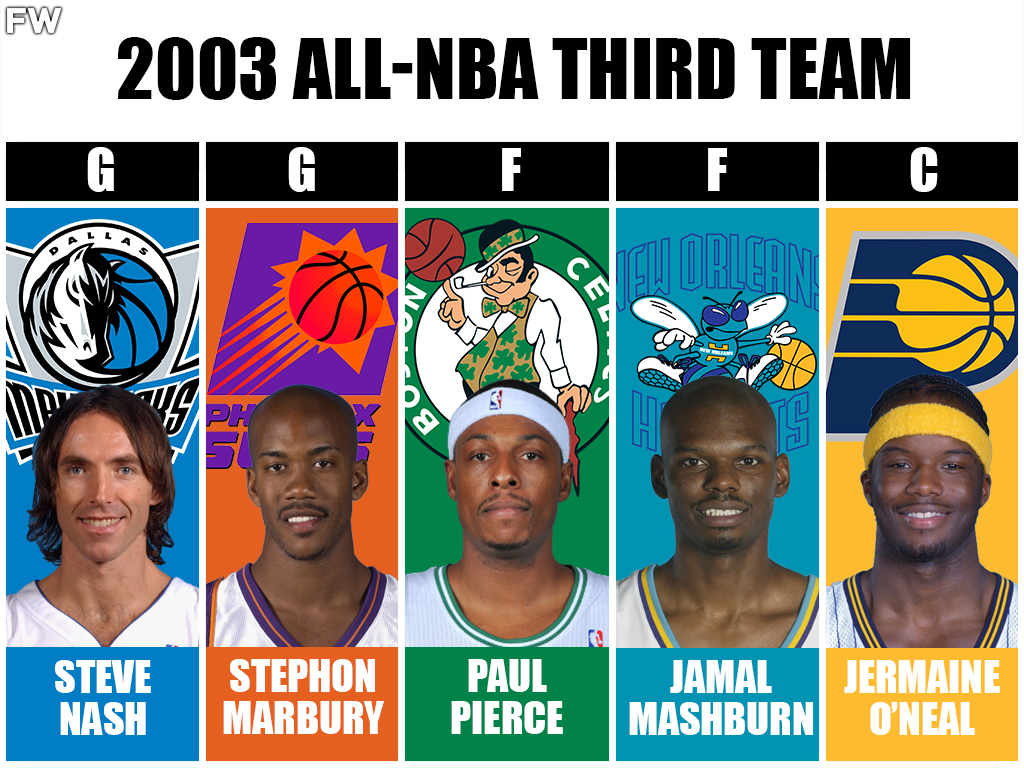
Steve Nash
17.7 PPG, 2.9 RPG, 7.3 APG, 1.0 SPG, 0.1 BPG
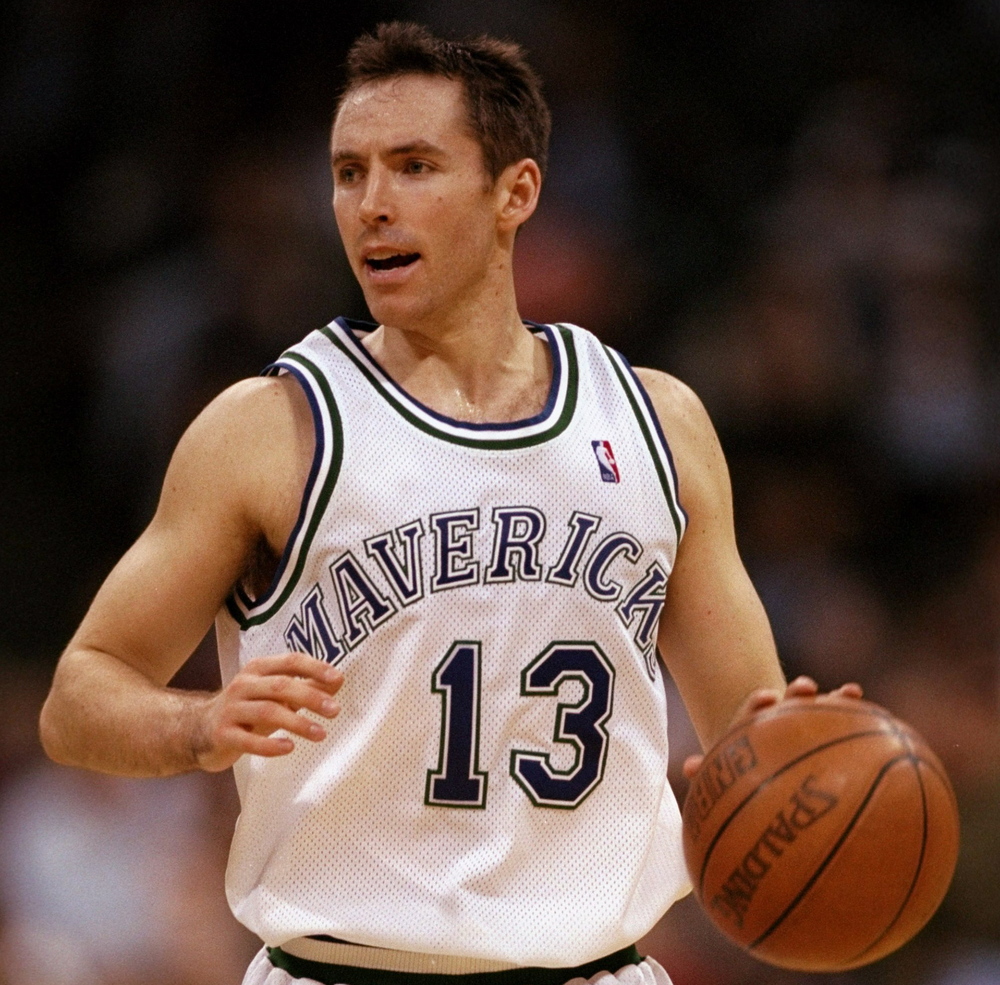
A point guard coming into his own, Steve Nash was not quite the superstar he would turn out to be with the Phoenix Suns, but he was still extremely effective as an offensive star. The Canadian shot 41.3% from three and 90.9% from the free-throw line, elite numbers from an All-Star point guard that formed one of the best duos in the league alongside Dirk Nowitzki. Of course, it would not be long before Nash became a 2-time MVP and superstar with the Suns just a few years later.
Stephon Marbury
22.3 PPG, 3.2 RPG, 8.1 APG, 1.3 SPG, 0.2 BPG
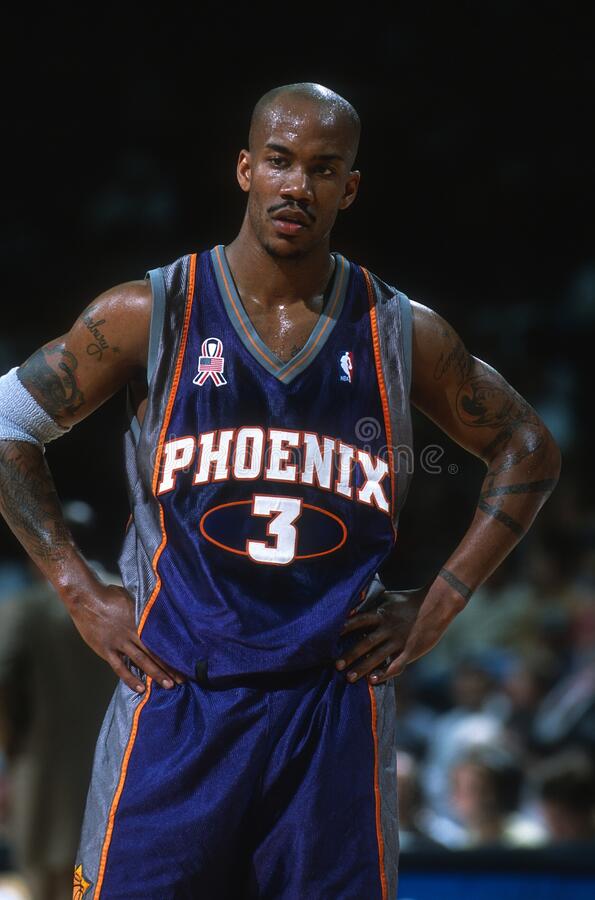
In his second and last All-Star appearance, Stephon Marbury was an elite offensive star for a Phoenix Suns team that took on the San Antonio Spurs in the first round of the playoffs. Known as “Starbury”, the talented point guard had one of his best seasons as a passer and scorer, consistently bringing his A-game to opponents throughout the season.
Paul Pierce
25.9 PPG, 7.3 RPG, 4.4 APG, 1.8 SPG, 0.8 BPG
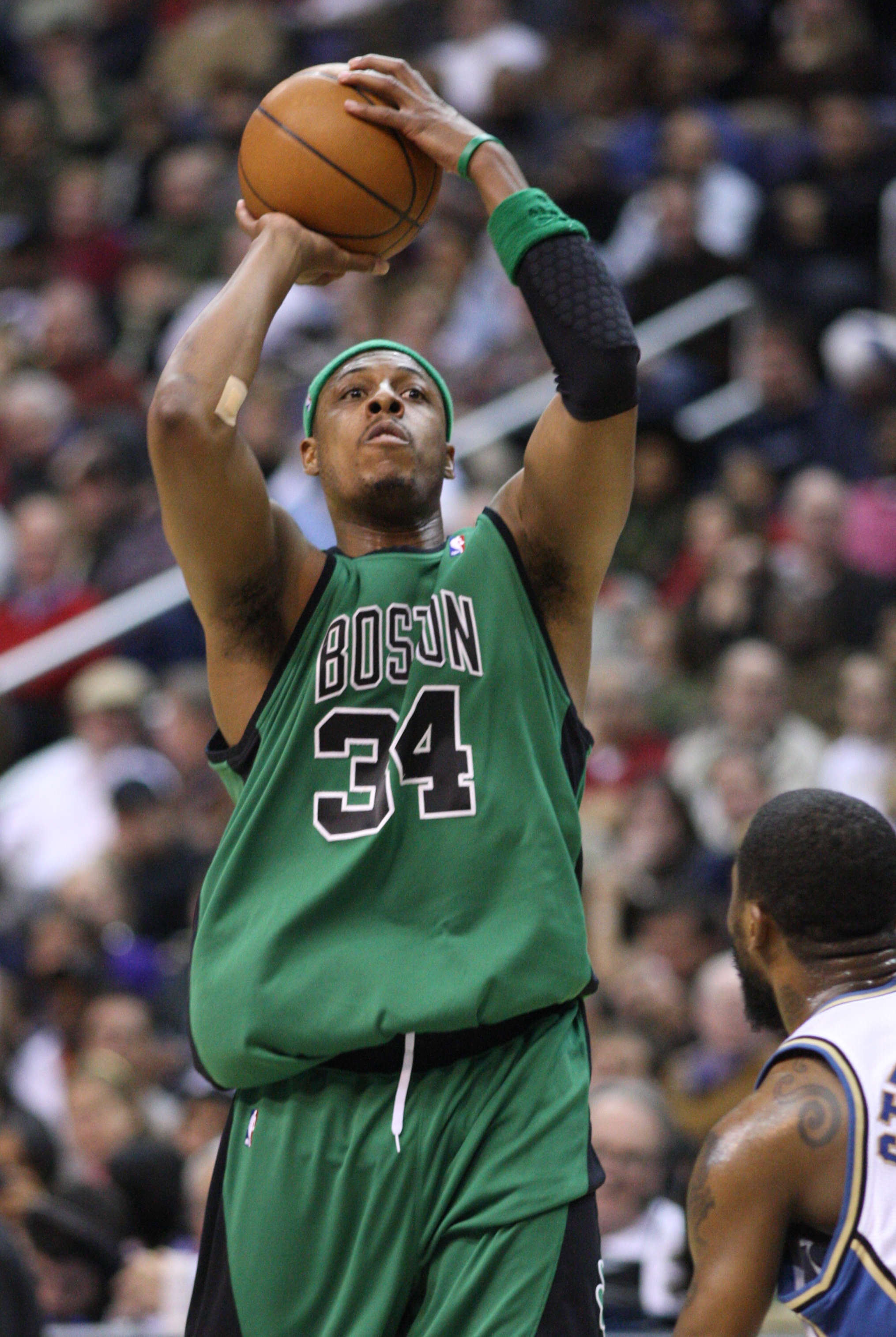
A talented scorer for the Boston Celtics, Paul Pierce made his second straight All-Star Team while taking his place as one of the best scorers in the league. The Truth was starting to build his legacy as a dominant offensive star for the Celtics because he managed to lead an average Boston side to the second round of the playoffs in a losing effort to eventual Finalist New Jersey Nets.
Jamal Mashburn
21.6 PPG, 6.1 RPG, 5.6 APG, 1.0 SPG, 0.2 BPG
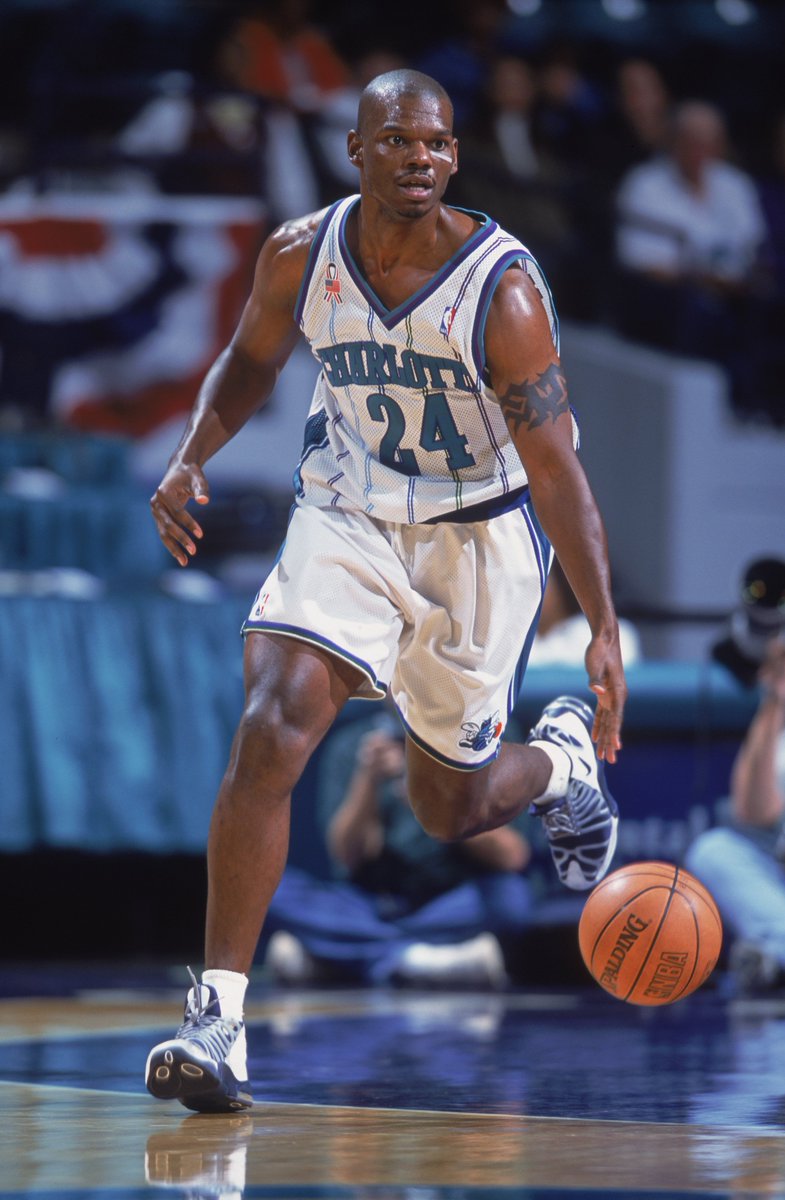
In his first and only All-Star season, Jamal Mashburn was at his best during the 2003 season with the New Orleans Hornets. The talented forward played all 82 games while contributing 40.5 MPG for his team, leading his side to the playoffs against Allen Iverson and the 76ers. Mashburn had a solid career which included 6 seasons averaging over 20 PPG, but his brightest moment came in 2003 due to his only All-Star and All-NBA selections.
Jermaine O’Neal
20.8 PPG, 10.3 RPG, 2.0 APG, 0.9 SPG, 2.3 BPG
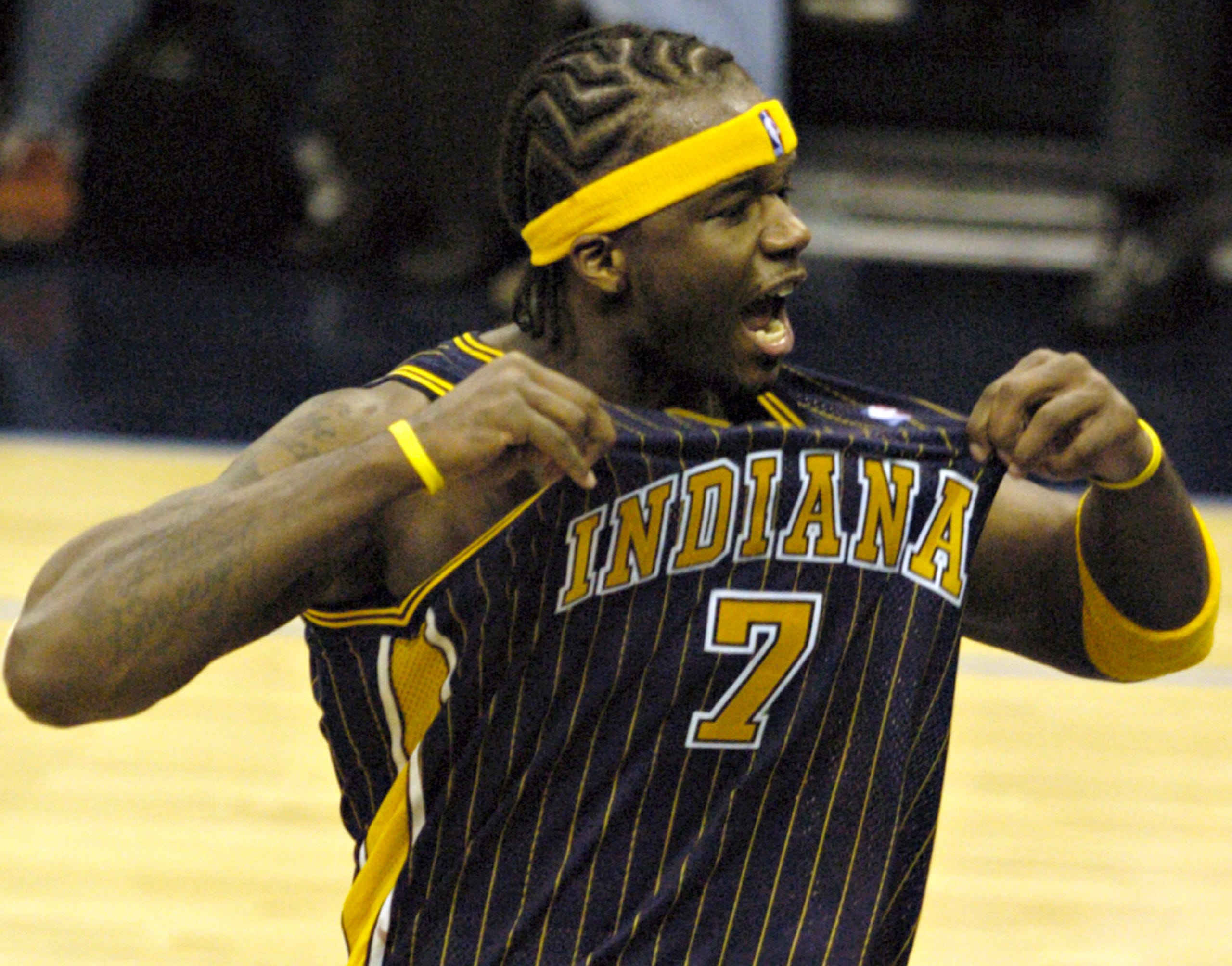
Making his second All-Star season, Jermaine O’Neal was coming into his own as an elite big man with the Indiana Pacers. Looking back, he should have had a much greater career than he did. A talented scorer and rebounder, O’Neal brought toughness and competitiveness every night for a hungry Pacers squad. Jermaine would soon have help in All-Star help in Ron Artest the following season, but of course, the Malice at the Palace would wash away any progress the team made.
All-NBA Second Team
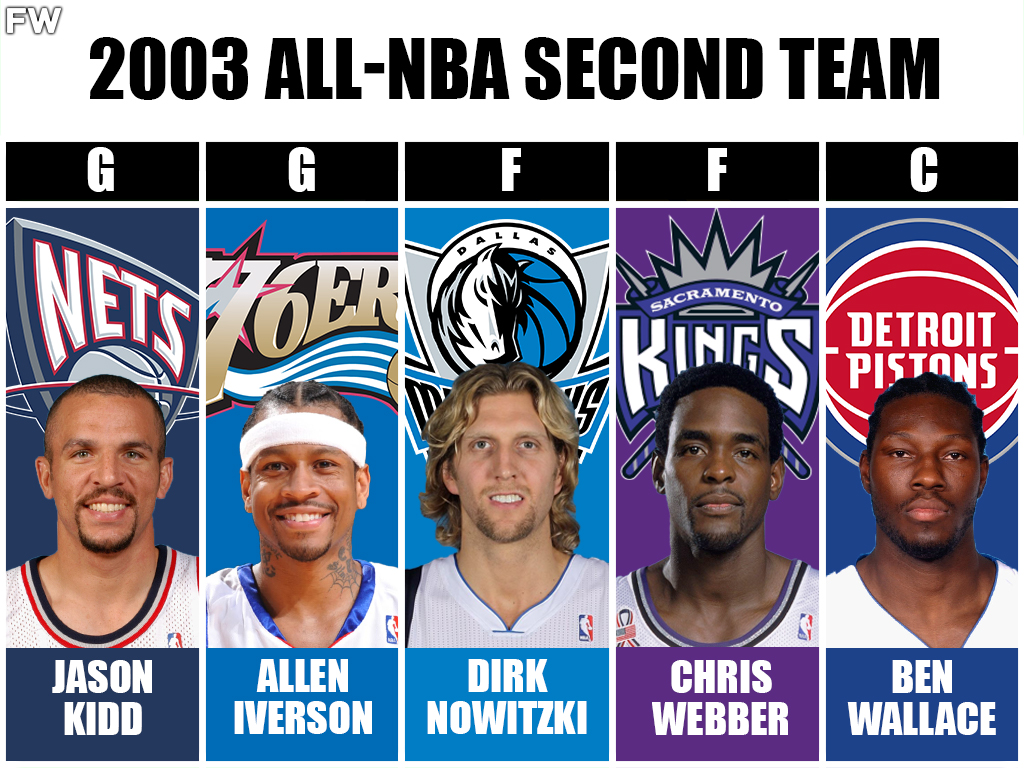
Jason Kidd
18.7 PPG, 6.3 RPG, 8.9 APG, 2.2 SPG, 0.3 BPG
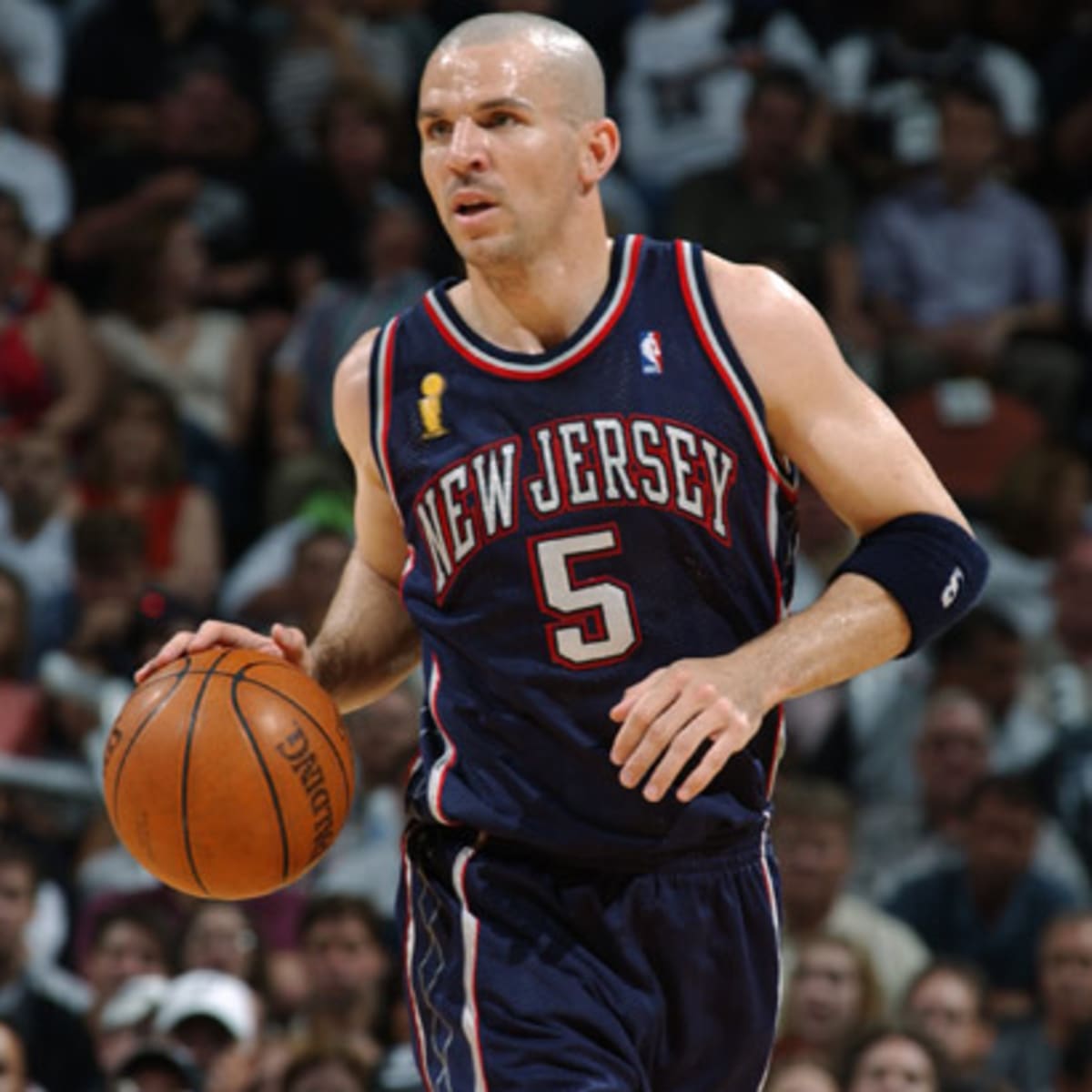
Arguably the best leader in the game at the time, Jason Kidd was simply sensational for the New Jersey Nets as he carried them to the NBA Finals. The dominant all-around point guard was not only an elite playmaker and defender, but he also rebounded at a high level while scoring the ball at an efficient clip. Leading the league in assists, there is no question Kidd deserved to make the All-NBA Second Team at least.
Allen Iverson
27.6 PPG, 4.2 RPG, 5.5 APG, 2.7 SPG, 0.2 BPG
Superstar Allen Iverson continued his dominance with the 76ers, making his 4th straight All-Star Team and putting up over 25 PPG for the 5th straight year. A dominant scorer despite his miniature size, Iverson was once again carrying Philadelphia on his back as the team made it to the second round in a losing effort against the Detroit Pistons. Due to his scoring ability, there was no doubt that A.I. deserved to make All-NBA Second Team.
Dirk Nowitzki
25.1 PPG, 9.9 RPG, 3.0 APG, 1.4 SPG, 1.0 BPG
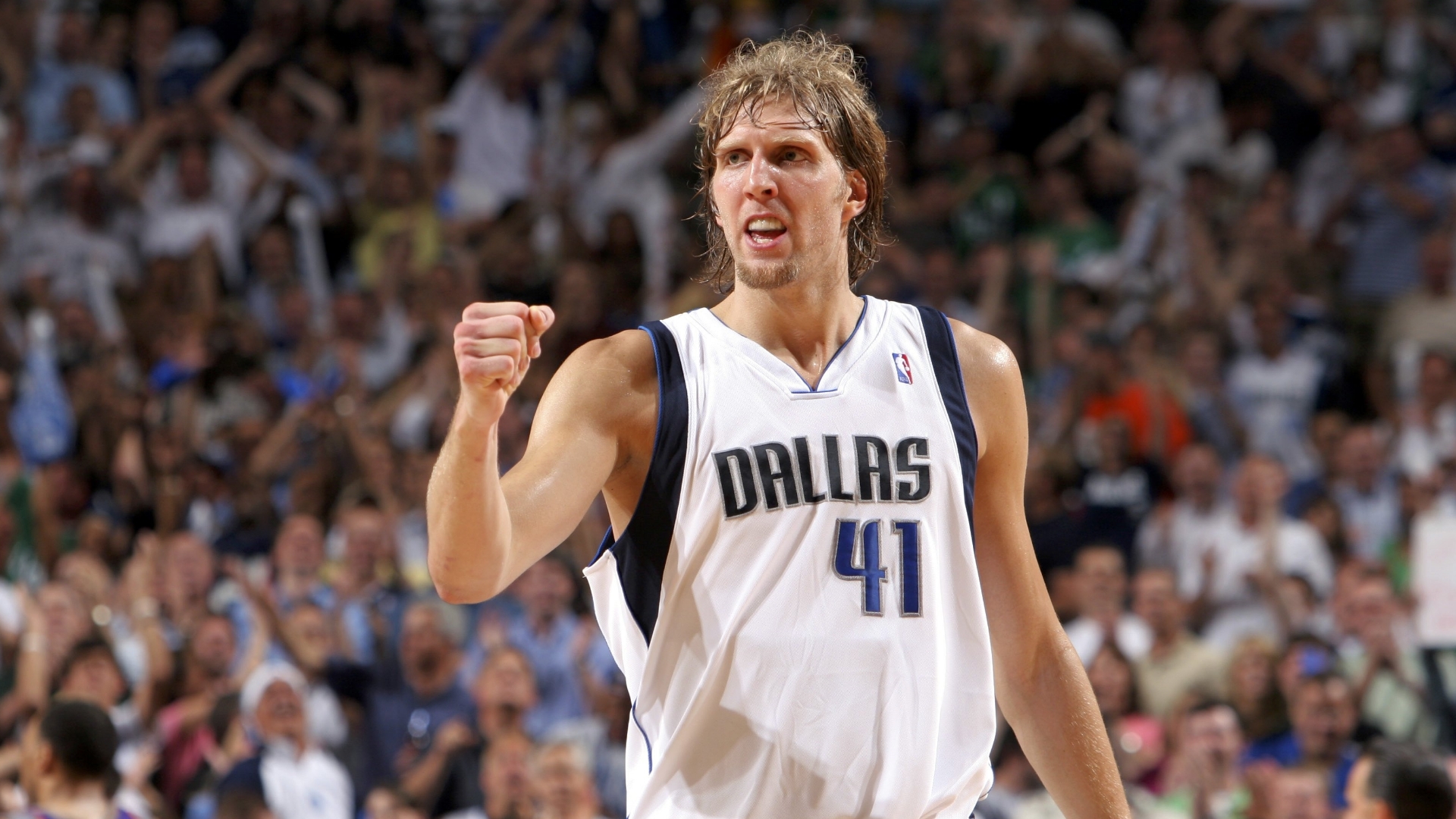
One of the greatest power forwards ever, Dirk was on his second straight All-Star season while putting up his then career-high in scoring. Nowitzki was showcasing his elite scoring ability and floor-spacing, nailing 46.3% from the field and 37.9% from the three-point line. The Mavericks knew they had a franchise superstar on their hands, and their success would continue to build as Dirk continued to mature his game.
Chris Webber
23.0 PPG, 10.5 RPG, 5.4 APG, 1.6 SPG, 1.3 BPG

One of the most talented forwards of his era, Chris Webber formed a winning squad in Sacramento with the Kings. A capable scorer, rebounder, and passer; Webber was given free rein to handle the rock and make plays with his elite skill set. Webber made All-NBA Second Team because he led Sacramento the third-best record in the West with a solid 0.720 winning percentage.
Ben Wallace
6.9 PPG, 15.4 RPG, 1.6 APG, 1.4 SPG, 3.2 BPG
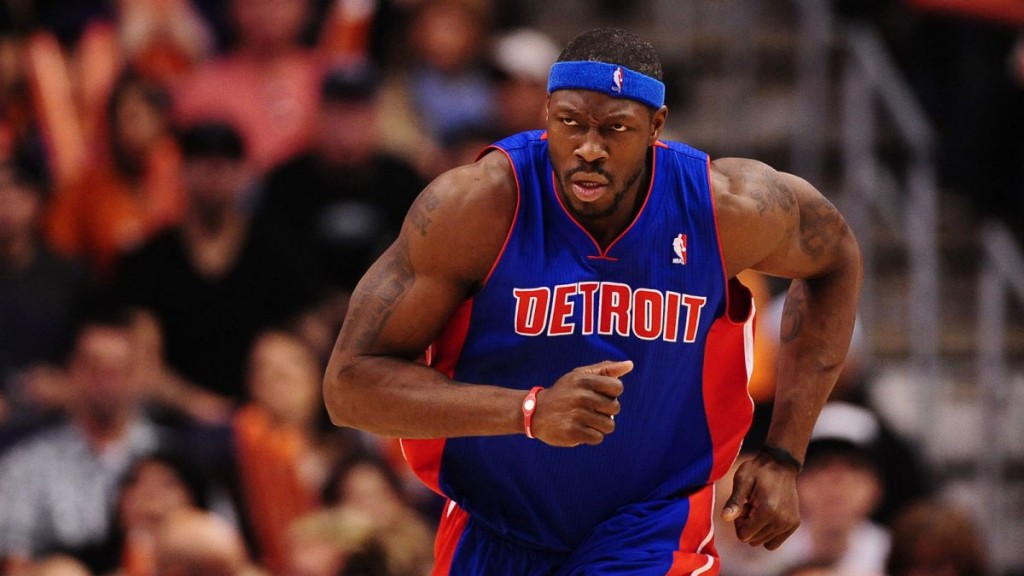
Defensive Player of the Year winner Ben Wallace was at his best in 2003, putting up 6.9 PPG and a career-high 15.4 RPG while blocking 3.2 shots per game. Making his first All-Star Team, Wallace was also the key cog behind the Detroit Pistons reaching the Eastern Conference Finals. The dominant defensive star was hardly an offensive force, but he completely owned the defensive side of the game better than anyone else.
All-NBA First Team
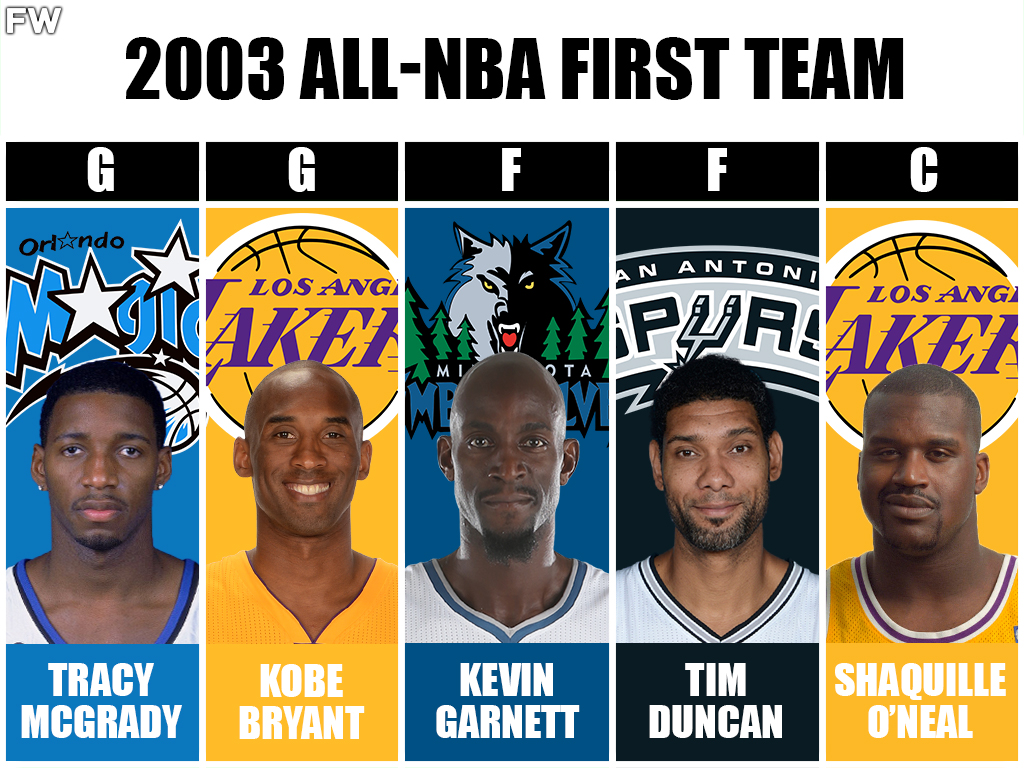
Tracy McGrady
32.1 PPG, 6.5 RPG, 5.5 APG, 1.7 SPG, 0.8 BPG
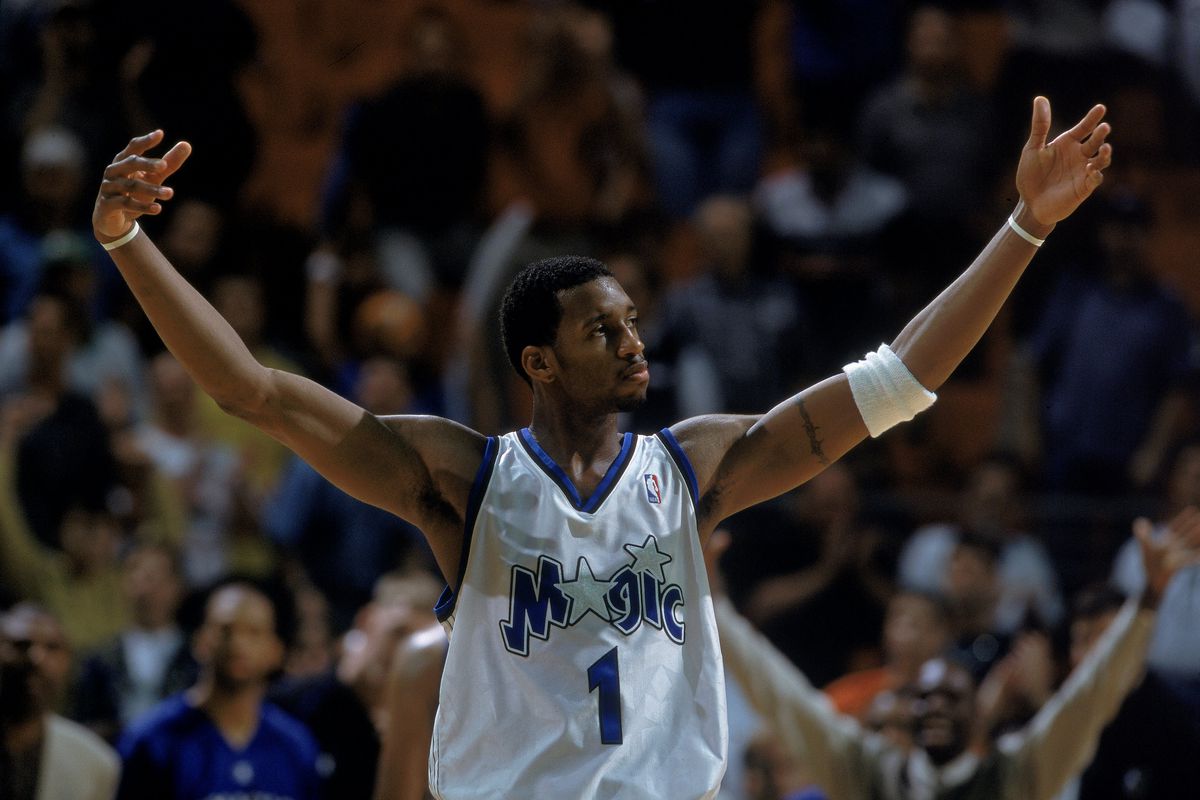
Headlining the first guard spot, Tracy McGrady was at his best level during the 2003 season. In his third season with the Orlando Magic after leaving the Toronto Raptors, T-Mac led the NBA in scoring with his career-high 32.1 PPG average. An unstoppable offensive force with elite athleticism and shooting ability, McGrady was easily one of the top two guards in the game alongside Kobe Bryant. The fact that T-Mac was being mentioned in the same breath as Bryant just showed how dominant the Magic superstar was, and he would go on to capture a second scoring title the following season.
Kobe Bryant
30.0 PPG, 6.9 RPG, 5.9 APG, 2.2 SPG, 0.8 BPG
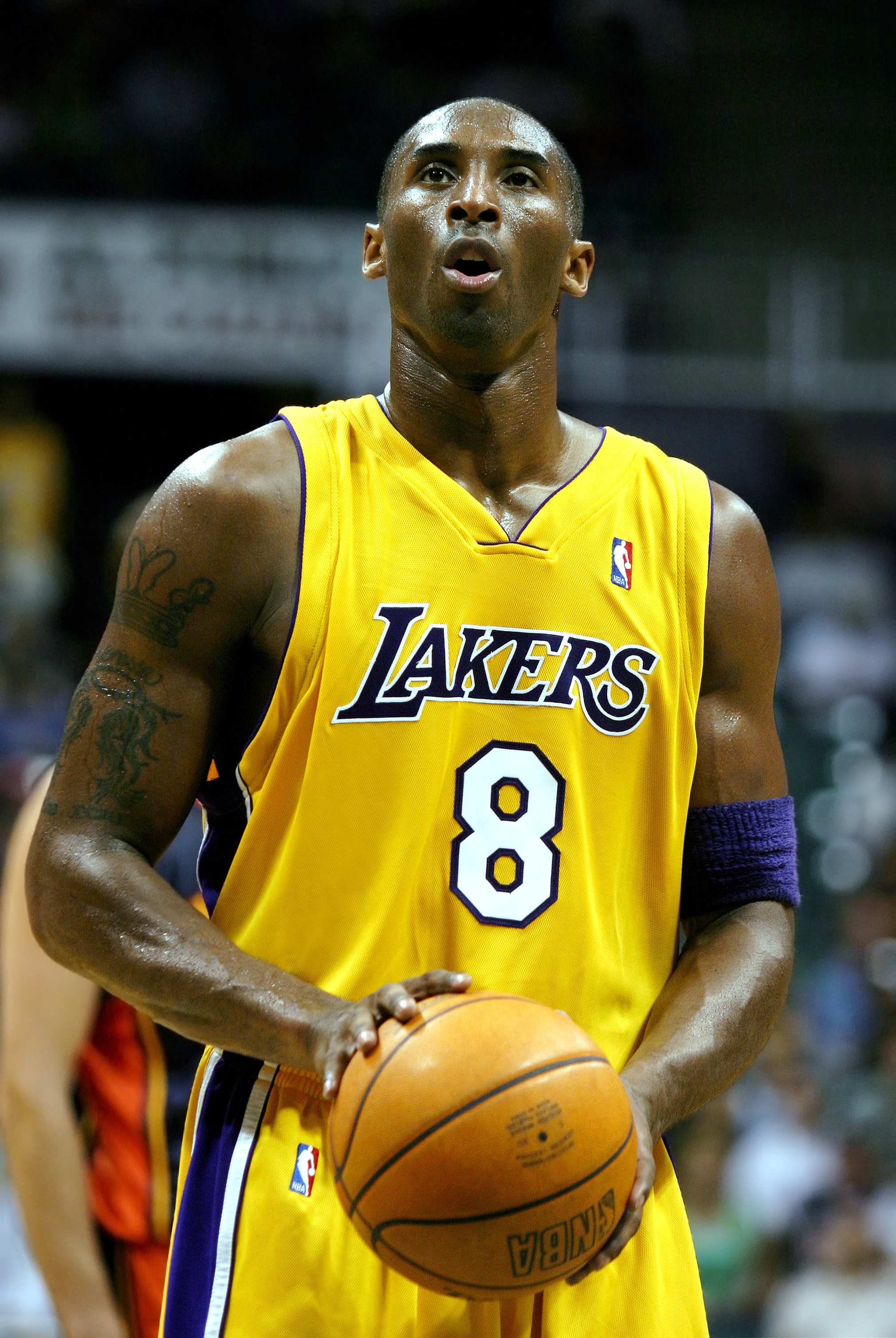
The premier guard in the NBA, Lakers superstar Kobe Bryant dominated the league with his 30.0 PPG scoring average as part of an all-time great duo with Shaquille O’Neal. No surprise, Shaq would also make the All-NBA First Team. Bryant was also a dominant defensive player who was getting it done in other areas including rebounding and passing, and the 2003 season was truly one of his best. Kobe could not cap his season off with an NBA championship, but making his 5th All-Star Team by age 24 was incredible at the time.
Kevin Garnett
23.0 PPG, 13.4 RPG, 6.0 APG, 1.4 SPG, 1.6 BPG

The Big Ticket himself, Kevin Garnett was simply outstanding for the Minnesota Timberwolves. A dominant defensive player and double-double machine, KG put up monster numbers while consistently coming through for Minnesota when it mattered most. One of the leading MVP candidates, Garnett began solidifying himself as one of the game’s top-5 players after marking the 5th straight season of averaging a double-double. The following season, Garnett would win league MVP which is a testament to the resume he was building.
Tim Duncan
23.3 PPG, 12.9 RPG, 3.9 APG, 0.7 SPG, 2.9 BPG
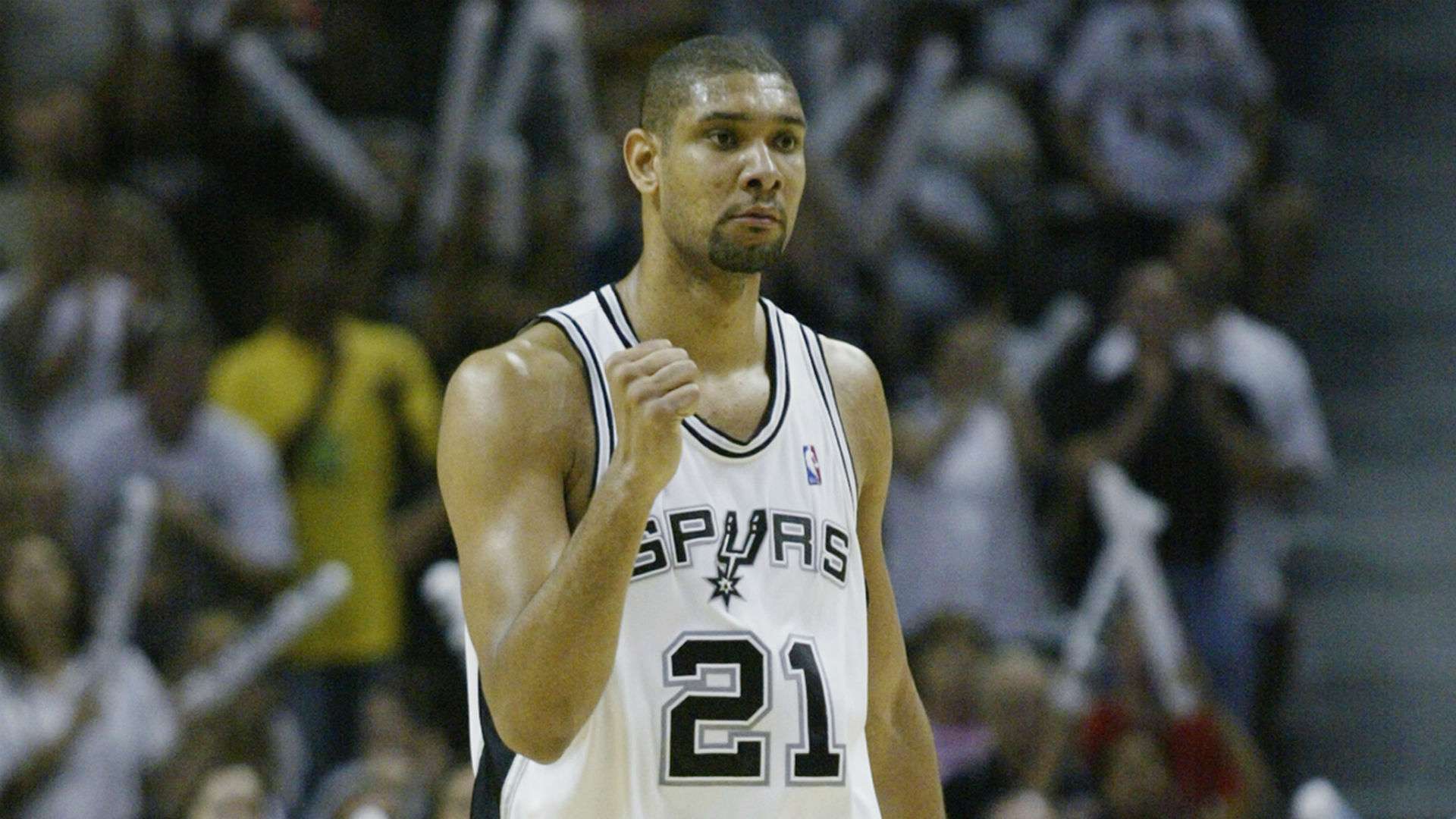
Tim Duncan was already the best power forward in the NBA, after putting up 5 straight seasons averaging a double-double, and making 4 All-Star Teams before the 2003 season. A legendary paint defender and scorer, Tim was at his best in 2003 by winning league MVP for the second straight season and eventually capturing the NBA championship. The Spurs were on their way to building a dynasty with Timmy on the roster, and the superstar’s 2003 season was one of his best considering the amount of individual dominance he had.
Shaquille O’Neal
27.5 PPG, 11.1 RPG, 3.1 APG, 0.6 SPG, 2.4 BPG
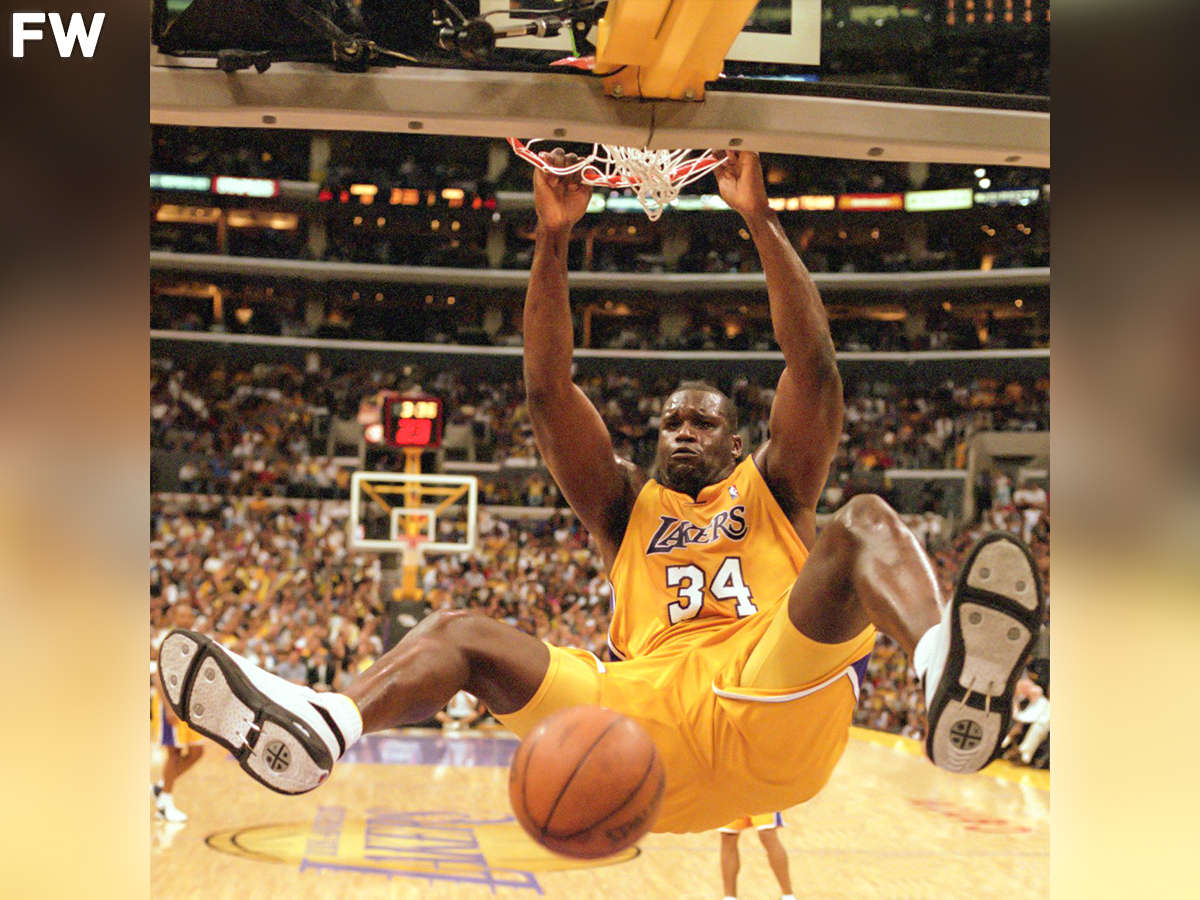
Still the most dominant physical force in the league, Shaquille O’Neal was still at his prime during the 2003 season with the Lakers alongside Kobe Bryant. The Big Diesel was supremely dominant in the paint, using raw force and power to dominate any defender in his path. The O’Neal and Kobe beef was growing slowly, and it was affecting their success on the court together. With Bryant coming into his own as possibly the best player in the league, it still did not stop Shaq from putting up his usual numbers.

